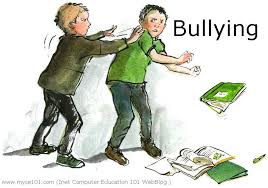
A recent study challenges the widely held belief that school bullies would eventually get their comeuppance by indicating that they are likely to end up with greater earnings.
The Institute for Social and Economic Research in the United Kingdom revealed earlier this month that children who displayed specific types of troublesome behaviour at school, such as having tantrums and making fun of or bullying others, had greater wages in their 40s.
Youngsters who had "conduct problems" in school also expressed greater job satisfaction.
In the meantime, youngsters who found it difficult to focus and build relationships with their peers were the ones who ultimately performed worse in the job market and experienced lower levels of life and career satisfaction.
Inadequate job performance and mental issues like anxiety have also been connected to less favourable results in the labour market.
The study compared a wide range of behaviours and skills recorded by teachers at the ages of 10 and 16 with educational attainment, incomes, working hours, and occupation up to the age of 46 using data from the 1970 British Cohort Study.
It was discovered that the social and emotional abilities found in school-age children could be useful in predicting several aspects of later life. Socioeconomic information including parental employment, family income, and educational attainment was taken into account in the study.
The authors conclude that the findings point to the need to reevaluate the ways in which schools reprimand their students.
“It is possible that what is often identified as aggressive behaviour is the adaptive response to a competitive environment,” they say.
“Rather than a punitive approach, there could be more focus on understanding the causes of the disruptive behaviour and teachers could be trained to identify strategies that help children to channel these tendencies in ways that fit better with the classroom.”
(Source:www.cnbc.com)
The Institute for Social and Economic Research in the United Kingdom revealed earlier this month that children who displayed specific types of troublesome behaviour at school, such as having tantrums and making fun of or bullying others, had greater wages in their 40s.
Youngsters who had "conduct problems" in school also expressed greater job satisfaction.
In the meantime, youngsters who found it difficult to focus and build relationships with their peers were the ones who ultimately performed worse in the job market and experienced lower levels of life and career satisfaction.
Inadequate job performance and mental issues like anxiety have also been connected to less favourable results in the labour market.
The study compared a wide range of behaviours and skills recorded by teachers at the ages of 10 and 16 with educational attainment, incomes, working hours, and occupation up to the age of 46 using data from the 1970 British Cohort Study.
It was discovered that the social and emotional abilities found in school-age children could be useful in predicting several aspects of later life. Socioeconomic information including parental employment, family income, and educational attainment was taken into account in the study.
The authors conclude that the findings point to the need to reevaluate the ways in which schools reprimand their students.
“It is possible that what is often identified as aggressive behaviour is the adaptive response to a competitive environment,” they say.
“Rather than a punitive approach, there could be more focus on understanding the causes of the disruptive behaviour and teachers could be trained to identify strategies that help children to channel these tendencies in ways that fit better with the classroom.”
(Source:www.cnbc.com)














